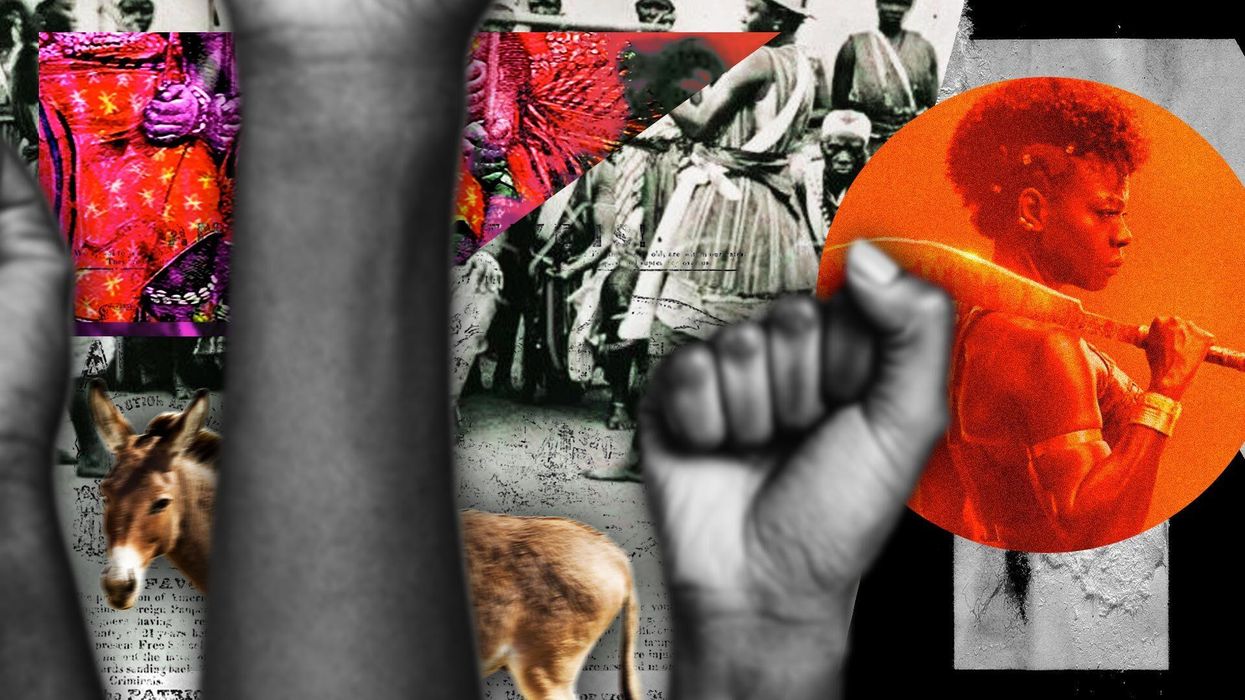
Getty Images

Democrats recently dropped a new ad campaign outlining the future of the party, but for some reason chose not to brand it in strictly political terms.
It went by the title “The Woman King” and took the form of a historical epic film set in the 1800s about the Agojie, the all-female fighting force that defended the Dahomey kingdom in West Africa.
The movie stars Oscar winner Viola Davis as General Nanisca, the leader of the Agojie. It has already received glowing reviews as a testament to inclusion and female empowerment from the same types of people who wouldn’t even watch Matt Walsh’s "What Is a Woman?" documentary.
When a movie based on historical events lies about critically important details – the role the Dahomey kingdom played in the slave trade, in this case – the film should be seen for what it truly is: a work of cinematic propaganda.
What was the message of this fictional tale?
Black women lead and protect their communities and are the warriors needed to defeat white supremacy and the patriarchy. Nanisca spent the entire film fighting against the black men trying to oprress her as well as the white ones she said brought immorality to Africa in the form of the slave trade.
The rejection of male leadership is what makes Dahomey a feminist utopia. The Abojie were unencumbered by husbands or children and free to dedicate themselves completely to their job. They were strong, unemotional warriors who defended their tribe from the powerful Oyo kingdom and convinced their king that palm oil would be just as profitable as slave trading.
The men in the film were anything but honorable. In stark contrast, the men in the film were portrayed as either abusive and rapacious or effeminate, indecisive, and weak. King Ghezo, played by actor John Boyega, elevated Nanisca to woman king after she disobeyed his direct order not to go on a mission to rescue her troops.
Viewers learned early on that the only other man allowed to live in the palace was a eunuch, whose deep voice, sassy attitude, and outfit made him look like an extra from the show "Pose."
The political metaphor was crystal clear: Emasculated men are the only ones who can access power in the left’s vision of "Woman King" utopia.
Dahomey is a visual representation of how radical feminist ideology produced the modern Democratic Party. The message throughout the film and across recent decades has been consistent: Forsake your feminine nature, desires for companionship, and hopes for a family to serve the regime.
One character literally said, “I do not want a husband. I want to be a warrior.” In this twisted worldview, childbirth is a function of oppressive patriarchy, but death on the battlefield is a noble end to a life spent serving the kingdom.
The “woman king” is the dominant political philosophy on the left – unless “trans women” make a claim to the throne – which means it has particular salience within the black community.
It motivates MSNBC hosts who think disobedient black men who question the Democrat party should “get in line” with the black women fighting to save democracy.
It explains why police abolitionist organizations led by black women argue that “abortion care is essential to black liberation” as well as why a black man running for a U.S. Senate seat would go to a historically black college to convince black men to kill their offspring.
One reason for the film’s rave reviews is that Hollywood producers know there is a certain set of black people who are so desperate for cultural affirmation that they will accept anything, from music that celebrates murder and pimping to movies that lie about slavery, as long as there is a black face on it. This is especially the case if black women are in the lead.
The movie was not without a few redeeming moments. At one point, Nanisca told the child she conceived as a result of a brutal rape, “You are not the thing that hurt me.” Unlike abortion advocates on the left today, she chose to execute her rapist rather than her baby.
"The Woman King" was a BLM fantasy flick posing as entertainment. The “say her name” shout-out to Breonna Taylor after the initial round of credits served as confirmation of the movie’s political intentions. It is no more historically accurate than a sci-fi buddy film entitled "Freddie and Me," in which Thomas Jefferson rises from the grave and teleports to the future in order to assist Frederick Douglass in the abolitionist movement.
That project would be rejected as an overt work of propaganda that sanitized an ugly part of history for the sake of political gain.
True believers in equality will do the same here.